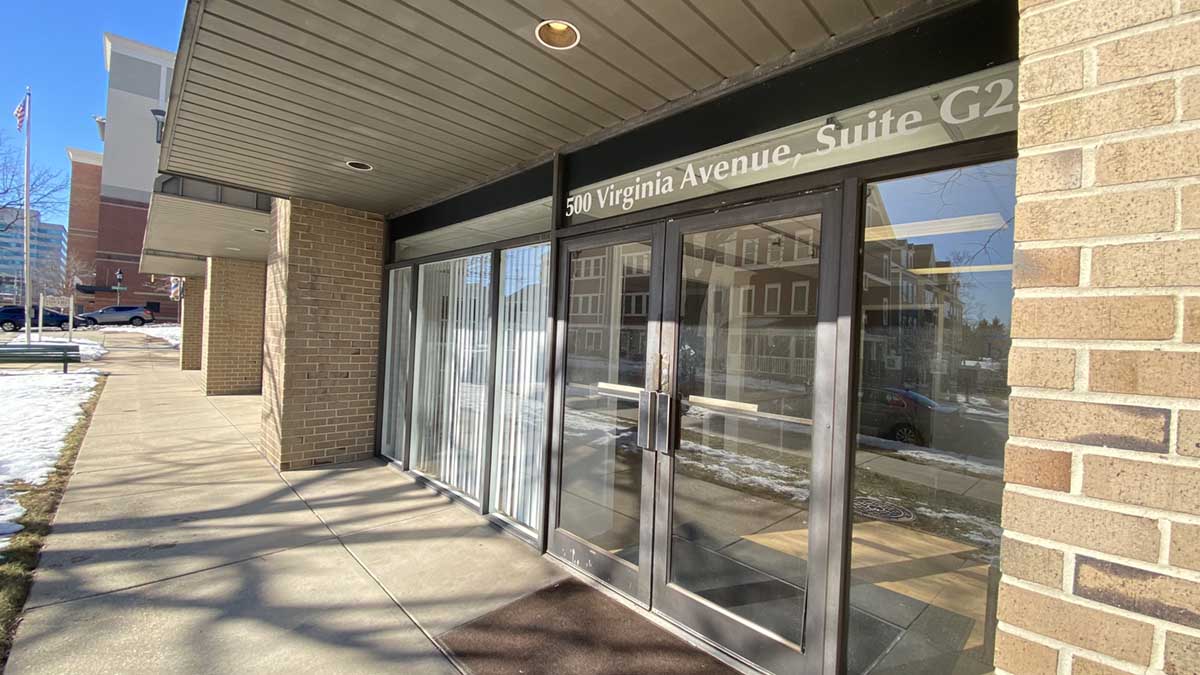443-279-2200
Renting from an individual landlord can offer a more personalized experience. With an individual landlord, renters often have direct contact with the person who owns the property. This can lead to a more personal relationship and a greater sense of trust and accountability. On the other hand, renting from a property management firm provides a level of professionalism that may be lacking with an individual landlord. Property management firms are experienced in managing rental properties and have systems in place to handle maintenance requests, rent collection, and other administrative tasks.
Key Takeaways
- Renting from an individual landlord offers personalized attention, while a property management firm provides professionalism.
- Property management firms are responsible for maintenance and repairs, while individual landlords may not have the resources to handle them promptly.
- Rent payments and lease agreements are more flexible with individual landlords, but property management firms offer more standardized processes.
- Communication and accessibility vary between individual landlords and property management firms, so it's important to clarify expectations upfront.
- Tenant screening and background checks are typically more thorough with property management firms, but individual landlords may have more flexibility in their criteria.
Personalized Attention vs. Professionalism: Which is Better for Renters?
Renting from an individual landlord has its advantages. One of the main benefits is the personalized attention that renters receive. Individual landlords often take a more hands-on approach to managing their properties, which can result in quicker response times for maintenance requests and a greater willingness to accommodate specific needs or preferences. However, there are also disadvantages to renting from an individual landlord. They may not have the same level of professionalism as a property management firm, which can lead to inconsistencies in communication or difficulty in resolving issues.
On the other hand, renting from a property management firm offers a higher level of professionalism. These firms have dedicated staff members who are trained to handle all aspects of property management, including maintenance and repairs, rent collection, and tenant screening. This can provide renters with peace of mind knowing that their needs will be addressed in a timely and efficient manner. However, the downside of renting from a property management firm is that the level of personalized attention may be lacking. Renters may feel like just another tenant in a large portfolio of properties, and it can be more challenging to establish a personal relationship with the management team.
Maintenance and Repairs: Who Takes Care of the Property?
One of the key considerations for renters is how maintenance and repairs are handled by their landlord or property management firm. When renting from an individual landlord, the responsibility for maintaining and repairing the property typically falls on them. This can be advantageous as it allows for direct communication and potentially quicker response times. However, individual landlords may not have the same resources or expertise as a property management firm, which could result in delays or subpar repairs.
In contrast, property management firms often have established relationships with contractors and service providers, making it easier to address maintenance and repair issues promptly. They also have systems in place to track and prioritize requests, ensuring that urgent matters are dealt with in a timely manner. However, some renters may find that property management firms are less responsive or less invested in the quality of repairs compared to individual landlords.
Clear communication and expectations are crucial when it comes to maintenance and repairs, regardless of whether you are renting from an individual landlord or a property management firm. Renters should establish a clear line of communication with their landlord or property manager and clearly communicate any issues or concerns. It is also important to have realistic expectations about response times and the level of service provided.
Rent Payments and Lease Agreements: What to Expect from Each Option
Rent payments and lease agreements are another important aspect to consider when deciding between renting from an individual landlord or a property management firm. With an individual landlord, rent payments are often made directly to them. This can provide a more personal touch, as renters have direct contact with the person who owns the property. However, individual landlords may have more flexibility in terms of payment methods and due dates, which can be advantageous for renters with unique financial situations.
On the other hand, property management firms typically have standardized processes for rent collection. Renters may be required to make payments through an online portal or by mailing a check to a central office. While this may lack the personal touch of paying directly to an individual landlord, it can provide a more streamlined and efficient process. Additionally, property management firms often have strict due dates for rent payments, which can be both a pro and a con. On one hand, it ensures that rent is paid on time and helps maintain the financial stability of the property. On the other hand, it may not offer the same level of flexibility as an individual landlord who may be more willing to work with renters on payment arrangements.
Lease agreements also differ between individual landlords and property management firms. Individual landlords may have more flexibility in terms of lease terms and negotiation. They may be open to shorter lease periods or allowing pets, for example. Property management firms, on the other hand, often have standardized lease agreements that are less negotiable. This can provide renters with a sense of stability and consistency, but it may also limit their options or require them to adhere to stricter rules and regulations.
Communication and Accessibility: How to Reach Your Landlord or Property Manager
Effective communication and accessibility are crucial for a positive rental experience. When renting from an individual landlord, renters often have direct access to their landlord's contact information and can reach out to them directly with any questions or concerns. This can lead to quicker response times and a more personal relationship. However, individual landlords may not always be readily available or responsive, especially if they have multiple properties or other commitments.
Property management firms typically have dedicated staff members who handle tenant communication and inquiries. They often have established communication channels, such as email or phone lines, that are monitored during business hours. This can provide renters with a more reliable and consistent means of communication. However, property management firms may not offer the same level of personal attention or responsiveness as an individual landlord.
Regardless of whether you are renting from an individual landlord or a property management firm, it is important to establish clear expectations for communication and accessibility. Renters should inquire about the preferred methods of communication and the expected response times. It is also important to be proactive in reaching out to your landlord or property manager with any questions or concerns and to document all communication for future reference.
Tenant Screening and Background Checks: How Do Individual Landlords and Property Management Firms Compare?
Tenant screening and background checks are an important part of the rental process, as they help ensure that landlords are selecting responsible and reliable tenants. The processes for tenant screening and background checks can vary between individual landlords and property management firms.
Individual landlords may have more flexibility in terms of their screening criteria and standards. They may rely on personal judgment and intuition when selecting tenants, which can result in a more subjective evaluation process. This can be advantageous for renters who may not meet traditional screening criteria but have other qualities that make them a good fit for the property. However, it can also lead to inconsistencies or potential biases in the selection process.
Property management firms often have standardized screening processes that are based on objective criteria. They may conduct credit checks, verify employment and income, and contact previous landlords for references. This can provide renters with a sense of fairness and transparency in the selection process. However, it may also result in a more rigid evaluation that does not take into account individual circumstances or unique situations.
Regardless of whether you are renting from an individual landlord or a property management firm, it is important to be prepared for the tenant screening process. Renters should gather all necessary documentation, such as proof of income and references, to streamline the application process. It is also important to be honest and transparent about any potential red flags or issues that may arise during the screening process.
Legal Issues and Disputes: How to Handle Conflicts with Your Landlord or Property Manager
Legal issues and disputes can arise in any rental agreement, regardless of whether you are renting from an individual landlord or a property management firm. Common legal issues include disputes over security deposits, lease violations, and maintenance responsibilities. It is important for renters to understand their rights and responsibilities and to know how to handle conflicts with their landlord or property manager.
When renting from an individual landlord, conflicts may be resolved through direct communication and negotiation. Renters can discuss their concerns with their landlord and work together to find a resolution. However, if the conflict cannot be resolved amicably, renters may need to seek legal advice or mediation services.
Property management firms often have established procedures for handling disputes. They may have designated staff members who are responsible for addressing tenant concerns and resolving conflicts. Renters should familiarize themselves with the dispute resolution process outlined in their lease agreement and follow the appropriate steps to seek a resolution.
Regardless of whether you are renting from an individual landlord or a property management firm, it is important to document all communication and keep records of any disputes or issues that arise. This can help protect your rights and provide evidence if legal action becomes necessary. Renters should also familiarize themselves with local tenant laws and regulations to ensure that their rights are being upheld.
Making the Right Choice for Your Rental Experience
In conclusion, the decision between renting from an individual landlord or a property management firm is a personal one that depends on individual needs and preferences. Renting from an individual landlord can offer a more personalized experience and direct communication, but it may lack the professionalism and resources of a property management firm. On the other hand, renting from a property management firm provides a higher level of professionalism and efficiency, but it may lack the personal touch and flexibility of an individual landlord.
When making a decision, renters should consider factors such as maintenance and repairs, rent payments and lease agreements, communication and accessibility, tenant screening and background checks, and legal issues and disputes. It is important to weigh the pros and cons of each option and to prioritize what is most important for your rental experience.
Ultimately, finding the right fit for your needs and preferences is crucial for a positive rental experience. Renters should take the time to research and interview potential landlords or property management firms, ask questions, and gather all necessary information before making a decision. By doing so, renters can increase their chances of finding a landlord or property management firm that meets their expectations and provides a smooth and enjoyable rental experience.





